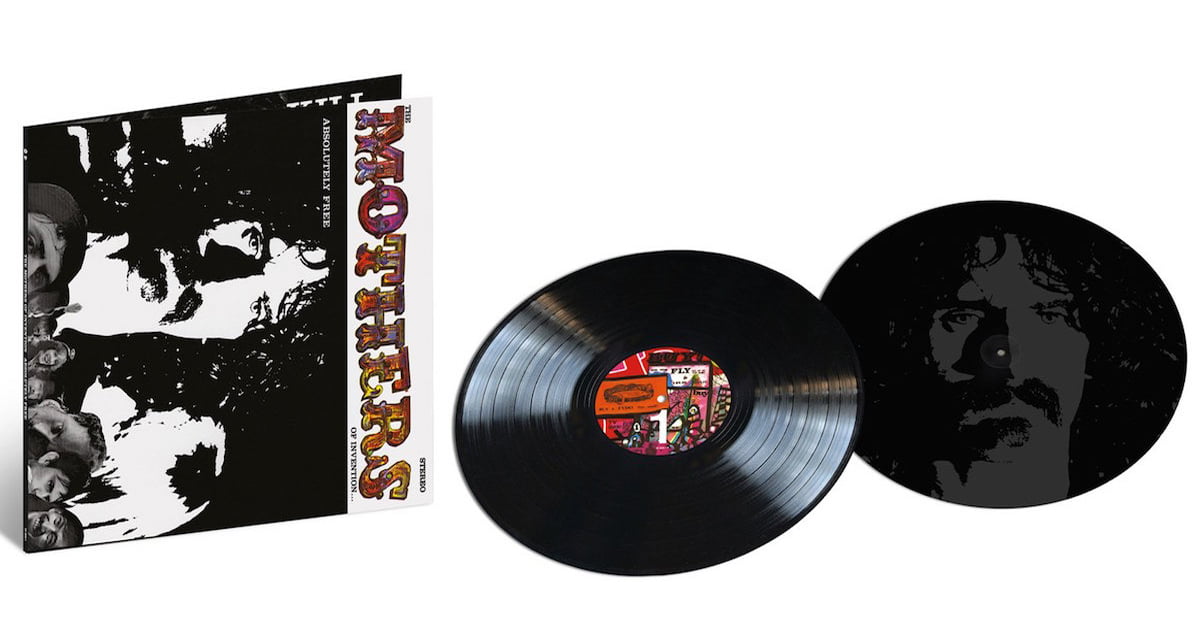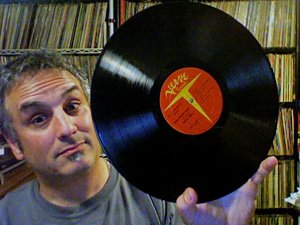It’s the time of year for saving money!
In 1966 Frank Zappa began to shake up the music world with a sort of 1-2-3 punch of ground breaking, forward-seeking, rock-based, classically-infused experimentally-driven albums — some of which actually got pretty high up on the pop music charts!
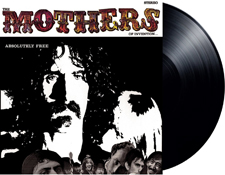 His landmark debut, Freak Out was one of the first double record sets in pop music and included just three songs on the second album, one song a free form piece that spanned one entire side (uncommon for a pop record of that period). The album dealt with everything from racial unrest (“Trouble Coming Every Day”) to personal stifling of creativity and individuality (“Who Are The Brain Police?”) to phony people (“You’re Probably Wondering Why I’m Here”). His 1968 release, We’re Only In It For the Money cemented Zappa’s brilliance as a social commentator and brilliant satirist, simultaneously calling out everyone from the Freaks in LA and Hippies in San Francisco — and their parents — to the authorities busting them.
His landmark debut, Freak Out was one of the first double record sets in pop music and included just three songs on the second album, one song a free form piece that spanned one entire side (uncommon for a pop record of that period). The album dealt with everything from racial unrest (“Trouble Coming Every Day”) to personal stifling of creativity and individuality (“Who Are The Brain Police?”) to phony people (“You’re Probably Wondering Why I’m Here”). His 1968 release, We’re Only In It For the Money cemented Zappa’s brilliance as a social commentator and brilliant satirist, simultaneously calling out everyone from the Freaks in LA and Hippies in San Francisco — and their parents — to the authorities busting them.
Nestled between those two albums came Absolutely Free in early 1967 which is now celebrating its 50th Anniversary. For numerous reasons, those aforementioned slices of Zappa wonderment tend to overshadow Absolutely Free, an album that has been out of print on vinyl for many many years. I mean, what with Freak Out being Zappa ground zero and …Only Money with its Sgt. Pepper parody cover and all that. Hopefully this new reissue will go a long way toward reestablishing Absolutely Free‘s rightful place as one of the most innovative and influential albums of the mid-60s. And for those of you who are influenced by this sort of thing, consider that Absolutely Free almost made the Top 40 in 1967 (the Wiki says it made it to #41 on the Billboard charts!). Perhaps I’m biased as a life long Zappa fan but I think all three of those recordings go together as a sort of trilogy — so much “conceptual continuity” going on there.
Before I babble on more about Absolutely Free, let me just address that this reissue sounds fabulous. Remastered directly from the original analog stereo master tapes, this new edition sounds warm and round like it should, yet with additional clarity. I suspect that it wasn’t compressed quite as much as it must have been back in the 60s, so there is a better sense of air and presence around the music. It sounds clear and crisp, and I mean that in a good way. The thick 180-gram vinyl is deep black and well centered. The album was mastered by the legendary Bernie Grundman. Material on the bonus disc was digitally mastered at 96 kHz, 24-bit resolution (more about that in a moment…).
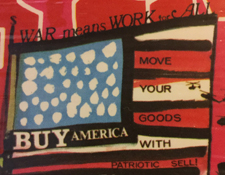 The cover art is also accurate and happily they have abandoned the decidedly non-period-accurate Zappa Records labels that have graced many of the other reissues and in place created full color labels gleaned from Zappa’s collage work from the back cover — a fun solution!
The cover art is also accurate and happily they have abandoned the decidedly non-period-accurate Zappa Records labels that have graced many of the other reissues and in place created full color labels gleaned from Zappa’s collage work from the back cover — a fun solution!
And…
They have included a reproduction of the mega-elusive — so-rare-that-most-people-have-never-seen-a-copy-including-me — Libretto containing the complete lyrics to the album and some artwork! This document was apparently censored by the label back in the 60s so Zappa printed them up himself and made them available to fans by mail-order (you could write to an address listed inside the album cover). Not sure how many people actually wrote in for a copy, but rest assured this is a pretty rare thing so its great to finally see and own a copy!
And in case you were ever unclear about Zappa’s intentions with his music, the opening letter from the Absolutely Free Libretto makes his position quite clear:
“The music of the MOTHERS speaks of the feelings of what might be described as THE VAST MINORITY. The feelings of the people on the fringe of everything . . . the ones who don’t care if they’re IN or OUT … don’t care if they’re HIP, HEP, SWINGIN’ or ZORCH. This is the audience the MOTHERS want to reach … those few have the power within themselves to cause or motivate social change but have never used it for one reason or another. If you are reading this and understand it (even if you have short hair and watch TV 18 hours a day), it is time that you realized WHO and WHAT YOU ARE. It is time you realized what the words to our songs mean.”
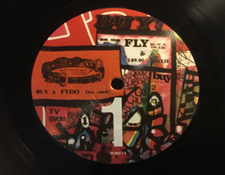 The words and music of Absolutely Free remain essential listening, especially in today’s turbulent times. Its songs tackle uncommon topics for the period, from sexual predator politicians and conformist society (“Brown Shoes Don’t Make It”) to disenfranchised ladder climbers (“Status Back Baby”) to phony personalities (“Plastic People,” “Call Any Vegetable”) to violence as commerce (“Uncle Bernie’s Farm”) — and that is just the tip of the iceberg….. It might be argued that these songs are more relevant than ever today, depending on one’s perspective.
The words and music of Absolutely Free remain essential listening, especially in today’s turbulent times. Its songs tackle uncommon topics for the period, from sexual predator politicians and conformist society (“Brown Shoes Don’t Make It”) to disenfranchised ladder climbers (“Status Back Baby”) to phony personalities (“Plastic People,” “Call Any Vegetable”) to violence as commerce (“Uncle Bernie’s Farm”) — and that is just the tip of the iceberg….. It might be argued that these songs are more relevant than ever today, depending on one’s perspective.
Absolutely Free is a complex song cycle, a concept album of a sort which some might consider a quasi-Operetta (thus the added value of having an actual Libretto in hand)… It “mashes up” musical references as diverse as the garage rock staple “Louie Louie” and ballet music by Igor Stravinsky (“The Rite of Spring,” “Petrouchka”) long before the mash-up concept was a thing people considered doing (that began in the mid ’90s). So, if you have never heard Absolutely Free, don’t go into this expecting the collegiate humor of later comic Zappa gems like “Don’t Eat The Yellow Snow” or much of the 1971 Fillmore live album. Absolutely Free is headier stuff compositionally and it also the place we first get to really hear Zappa really letting loose on his guitar soloing.
Listen for the two versions of “America Drinks,” one of which opens up Side 2 in a seemingly disjointed, near-dissonant, twisted take… And then listen for the polar opposite at the end of the side: a cheesy, loose lounge fake-jazz version which closes the record (“America Drinks And Goes Home”). Its the same song. Just very, very different arrangements. It is pretty amazing when you get your head around what he’s done there and then also remember that this was 1967, not 2017 where we are more accustomed to music being deconstructed.
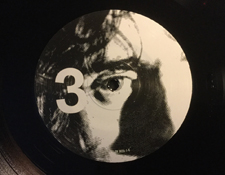 One additional feature of this new version of Absolutely Free is a second one-sided album containing bonus tracks including singles, radio advertisements from the period and some previously unreleased remixes, circa 1969. To the latter, I checked with Zappa Vaultmeister Joe Travers and they apparently don’t know exactly what these mixes were created for; thus, I am speculating that these were probably alternate mixes created for the contractual obligation “hits” collection Zappa put together for his former label, Verve Records, Mothermania. (Note: I haven’t had time to compare / contrast the versions here vs. Mothermania but will at some point soon and if there are any significant differences I’ll report on them in the comments section below).
One additional feature of this new version of Absolutely Free is a second one-sided album containing bonus tracks including singles, radio advertisements from the period and some previously unreleased remixes, circa 1969. To the latter, I checked with Zappa Vaultmeister Joe Travers and they apparently don’t know exactly what these mixes were created for; thus, I am speculating that these were probably alternate mixes created for the contractual obligation “hits” collection Zappa put together for his former label, Verve Records, Mothermania. (Note: I haven’t had time to compare / contrast the versions here vs. Mothermania but will at some point soon and if there are any significant differences I’ll report on them in the comments section below).
Overall, this bonus disc is great, especially as it alleviates the unfortunate decision by Rykodisc (and perhaps Zappa himself) with the late 1980s (and mid-’90s reissue) CD edition of the album which put the single (“Why Don’t Ya Do Me Right?” b/w “Big Leg Emma”) in the middle of the album, nestled between the two “sides” (which makes for a very unsettling listen if you know the recording, as the bonus tracks do not really fit in with or relate directly to the album tracks… you can hear that version of Absolutely Free up on Tidal if you use that streaming service).
The icing on the cake of the new 50th Anniversary edition of Absolutely Free is the inclusion of a nifty laser-etched fourth side (unplayable) featuring the iconic Zappa cover image from the cover. Nifty! One last tidbit worth noting: this reissue also restores the original album art including the “WAR means Work for All” line from the back cover collage; initially this was printed in light, barely visible, grey type on the original album cover, apparently due to label legal concerns at the time. It wasn’t even on the CD version I have (!) but now it is very clearly visible in black.
Anyhow, overall this is a fine restoration of Absolutely Free, so if you don’t have an original copy or simply want to hear a nice clean version on vinyl (and to get the Libretto!), pick this reissue without hesitation.
